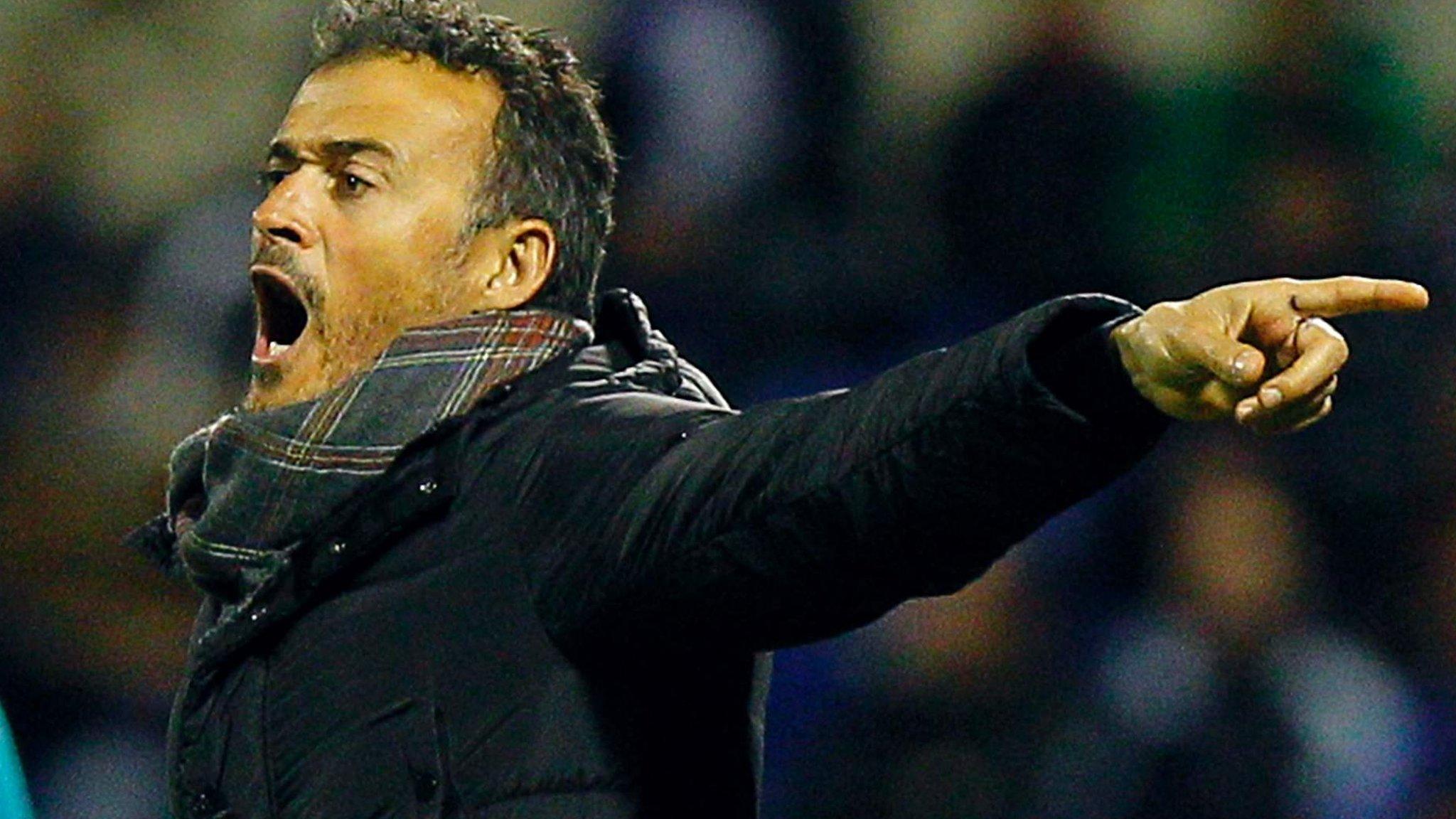Barcelona v Real Madrid: Why doesn't Luis Enrique get the praise he deserves?
- Published
- comments
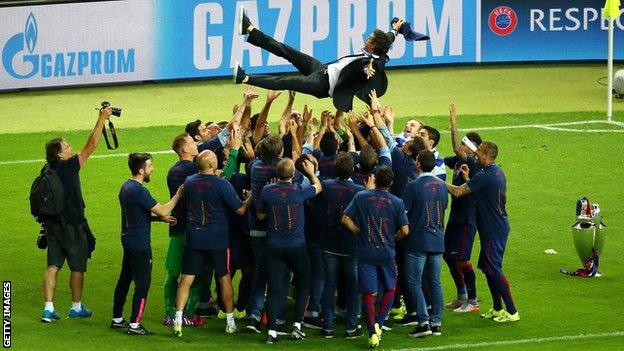
Luis Enrique selected 28 different starting line-ups in his first 28 Barcelona matches
During the Barcelona coach's first two years in charge, he led his team to a remarkable eight trophies - including a Liga, Copa and Champions League treble in his very first season.
We could be talking about Pep Guardiola, whose stunning achievements at Camp Nou earned him enormous respect and admiration.
But we're actually talking about Barca's current boss Luis Enrique, whose trophy haul has matched his predecessor and who shares many other similarities with Guardiola, with both men spending their best playing days with the club and starting their coaching careers with the B team.
There is, however, one notable difference: Enrique has not inspired anything like the same kind of adulation as Guardiola.
Whenever the subject of the game's greatest managers is discussed, the same names invariably crop up: Guardiola, Diego Simeone, Antonio Conte, Jurgen Klopp, Jose Mourinho…but despite winning more trophies than anyone in recent years, Luis Enrique is hardly ever mentioned.
Why not? Ahead of his team's Clasico clash with Real Madrid on Saturday, BBC Sport examines the strange lack of appreciation shown towards one of the most successful managers in the world.
The discovery of a new winning formula
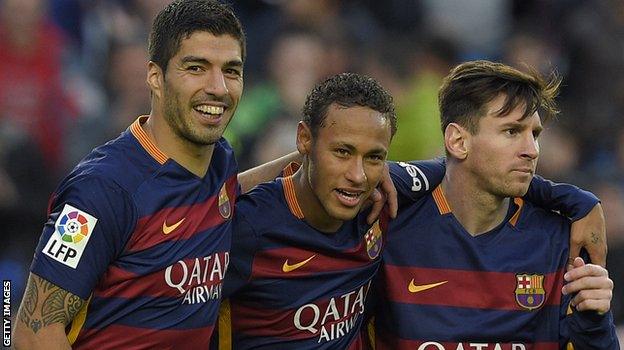
Lionel Messi (right), Luis Suarez (left) and Neymar all scored in the same game for the first time against Atletico Madrid in January 2015
The easiest accusation against Enrique is that any half-decent coach would win with a team containing Luis Suarez, Neymar and Lionel Messi.
But this can be rebutted by recalling the season before his arrival, 2013-14, when Barca won absolutely nothing under the hapless management of Argentine Tato Martino, who appeared determined to show that even the greatest players can fail if they are not well led.
In fairness to Martino, his brief spell - and Enrique's subsequent arrival in the summer of 2014 - coincided with the gradual demise of the team built by Guardiola.
Something had to change, and Enrique spent his first few months at the helm experimenting in pursuit of that elusive 'something', selecting 28 uniquely different starting line-ups in his first 28 games as he searched for the magical formula. Results, predictably, were patchy and criticism set in.
Finally, he found the tactical breakthrough: Messi was repositioned from 'false nine' to the right wing, with summer signing Suarez in the middle and Neymar on the left. Intricate build-up through midfield was sacrificed in favour of getting the ball to the danger-men as quickly as possible.
The new approach was premiered against Atletico Madrid in January 2015. Barca were brilliant, won 3-1, and Messi, Suarez and Neymar all scored in the same game for the very first time.
Five months later, they had won everything. And a year after that, they claimed the double. Enrique's initial tinkering had paid off, and Barca's status among the elite was regained.
The case against - it was Messi's idea & no Plan B
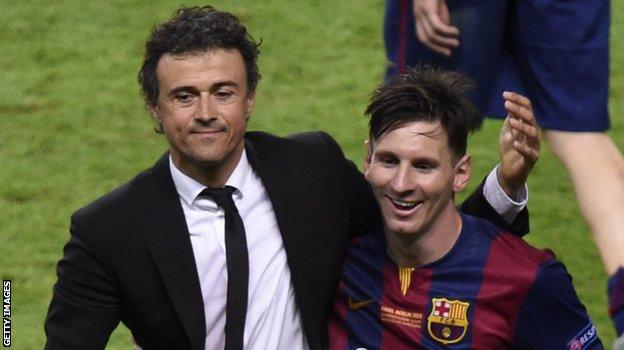
Lionel Messi - is the Argentine the brains behind Barcelona's current success?
Despite all those trophies, doubts lingered - even among Barca fans, who spend hours debating whether their manager actually deserves any credit for his team's success.
Maybe the biggest charge against Enrique is that he was not responsible for instigating the new playing system. Albert Roge, a journalist for Barcelona-based newspaper Diario Sport, explains the widespread belief that Messi, not Enrique, was the brains behind the changes.
"In one of their first training sessions together, Messi saw that Luis Suarez is a spectacular striker and you can't put him on the wing," Roge told BBC Sport.
There are also complaints that the team have become overly reliant upon the scoring exploits of their superstar front three, with the rest of the team neglected, and that the new style of play is not particularly attractive to watch.
"Everything depends on the performance of the 'trident'," continues Roge. "The midfielders aren't protagonists anymore. And when things go badly, there are no solutions from the bench - no change of system, no introduction of players.
"I think Luis Enrique has little ability to change games. His only solution is putting a centre back like Gerard Pique up front. At Barca, that can't happen."
So he is criticised for supposedly allowing Messi to introduce a new playing system, criticised when that system is less pleasing on the eye than the one it replaced, criticised for depending heavily upon arguably the best forward line in history, criticised for not having any tactical solutions and criticised when he does try something different.
All those negatives can be countered. Even if Messi did devise the tactical set-up, does that really matter if it works - which it does - and keeps the club's most important player happy? And surely if Enrique employed a system which didn't get the most out of his superstar strikers, he would be accused of failing to maximise the qualities of his key assets.
But whatever Luis Enrique does, with some people it seems he just can't win.
Punished for not 'playing the game'?
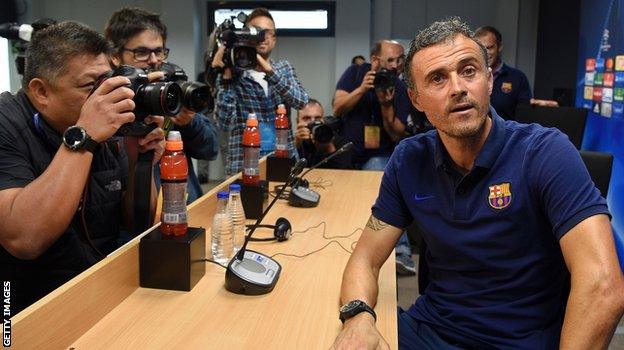
Does Luis Enrique see the press as an enemy?
A major reason for the lack of positive PR surrounding Luis Enrique is that he does absolutely nothing to court it.
When Barca fans chant his name (yes, plenty of supporters do like him) he stands impassively on the touchline, giving the impression he has not even heard them; when he was named the World Coach of the Year at January's Ballon d'Or ceremony, he did not even bother to turn up and receive his award, saying he was too busy.
Enrique appears to regard his job to be coaching a football team - and that's it. The rest, you get the strong impression, he sees as unnecessary peripheral nonsense which is not worth his time or effort.
That attitude is evident in his press conferences, which he clearly regards as irritants to be navigated as quickly and safely as possible. He never delivers juicy lines on the latest controversy, never gives anything away about his selection plans, and never attempts to hide his disdain for any questions he regards as inappropriate.
Diario Sport journalist Roge claims: "Luis Enrique regards the press as an enemy. If results are favourable, that's OK. But as soon as they're not, lots of journalists are excited about it because of his continual lack of respect in press conferences."
Now, perhaps, we are getting to the crux of Enrique's popularity problem: he doesn't 'play the game' of pandering to journalists and cheerleading in front of fans. Instead, he is dour and distant, appearing to regard such superficial chores as unnecessary.
His low-key Twitter account, external is revealing. The usual motivational messages of thanks and encouragement to players and fans are conspicuous by their absence, with Enrique largely ignoring football altogether and instead devoting many of his tweets to his other passion, cycling.
Intriguingly, those tweets show an altogether different side of his personality: when he is talking about cycling, he is warm, enthusiastic and good-humoured - a complete contrast from the sullen, snarky demeanour he adopts in press conferences.
If he could be as cheerful and open in his job as he is with his hobby, perhaps he would not be such a divisive figure.
A match Enrique dare not lose
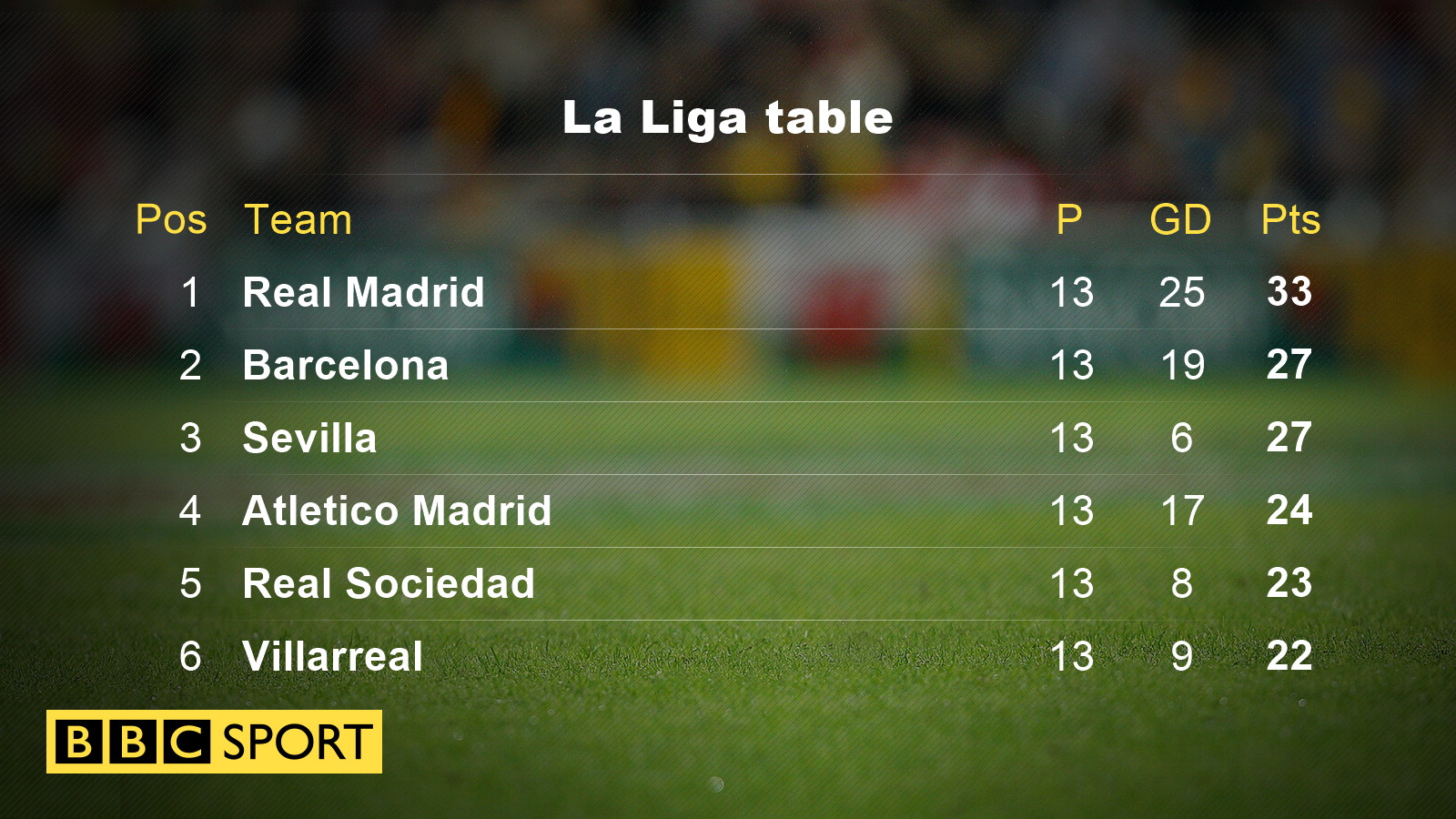
Saturday's Clasico is crucial for Barca, who have fallen six points behind Real following a mediocre start to the season.
And Enrique, predictably, has found himself facing plenty of criticism, especially after last weekend's draw at Real Sociedad which he admitted was the team's worst performance during his time in charge.
The old familiar tactical complaints have come flooding back, along with irritation at the poor form of expensive summer signings Paco Alcacer and Andre Gomes, especially following Enrique's jettisoning of highly regarded home-grown youngsters Munir El-Haddadi, Sandro, Sergi Samper and Alex Grimaldo.
However this season pans out, it could well be Enrique's last. He has often publicly stated that he does not see himself tolerating the pressures of his job for many years and has been evasive about whether he intends to renew his contract, which expires at the end of the season - but then again, he is evasive about everything.
As things stand, although many Barca fans would regret his departure, a significant chunk would not be at all upset. Indeed, there's already plenty of speculation about the identity of his successor, with Sevilla boss Jorge Sampaoli a particularly favoured option.
Football fans and the media are fickle, of course, and a resounding Barca victory over their arch rivals this weekend would certainly relieve the pressure on Enrique for a while.
- Published29 November 2016
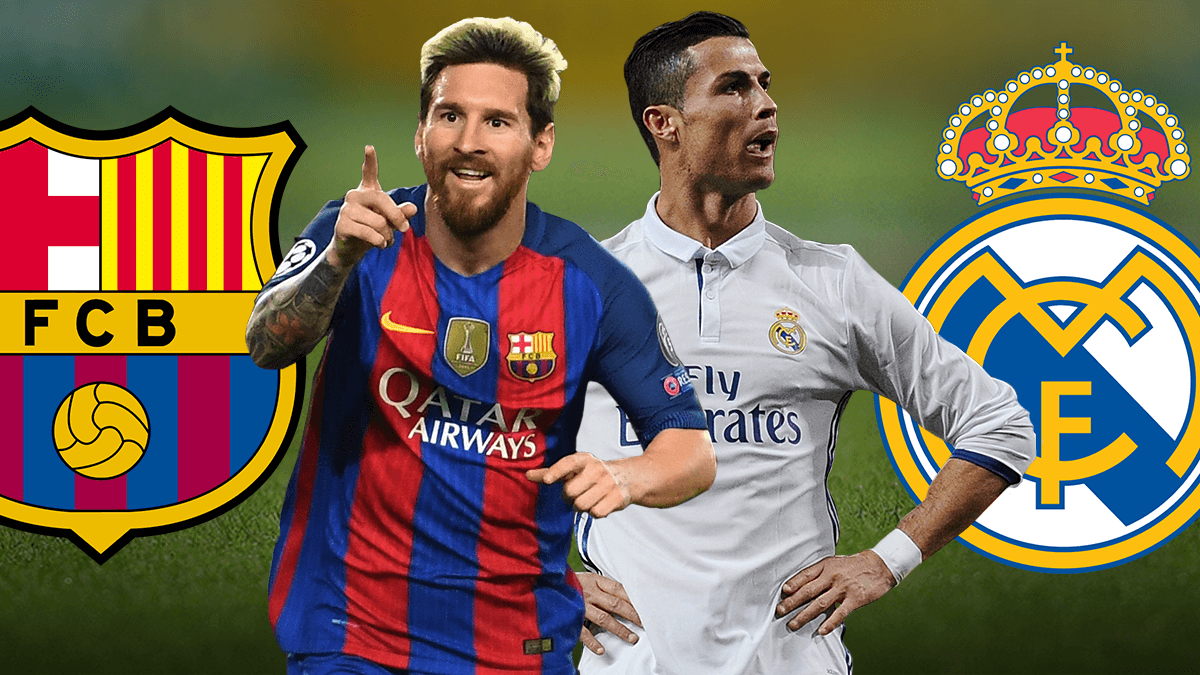
- Published30 November 2016
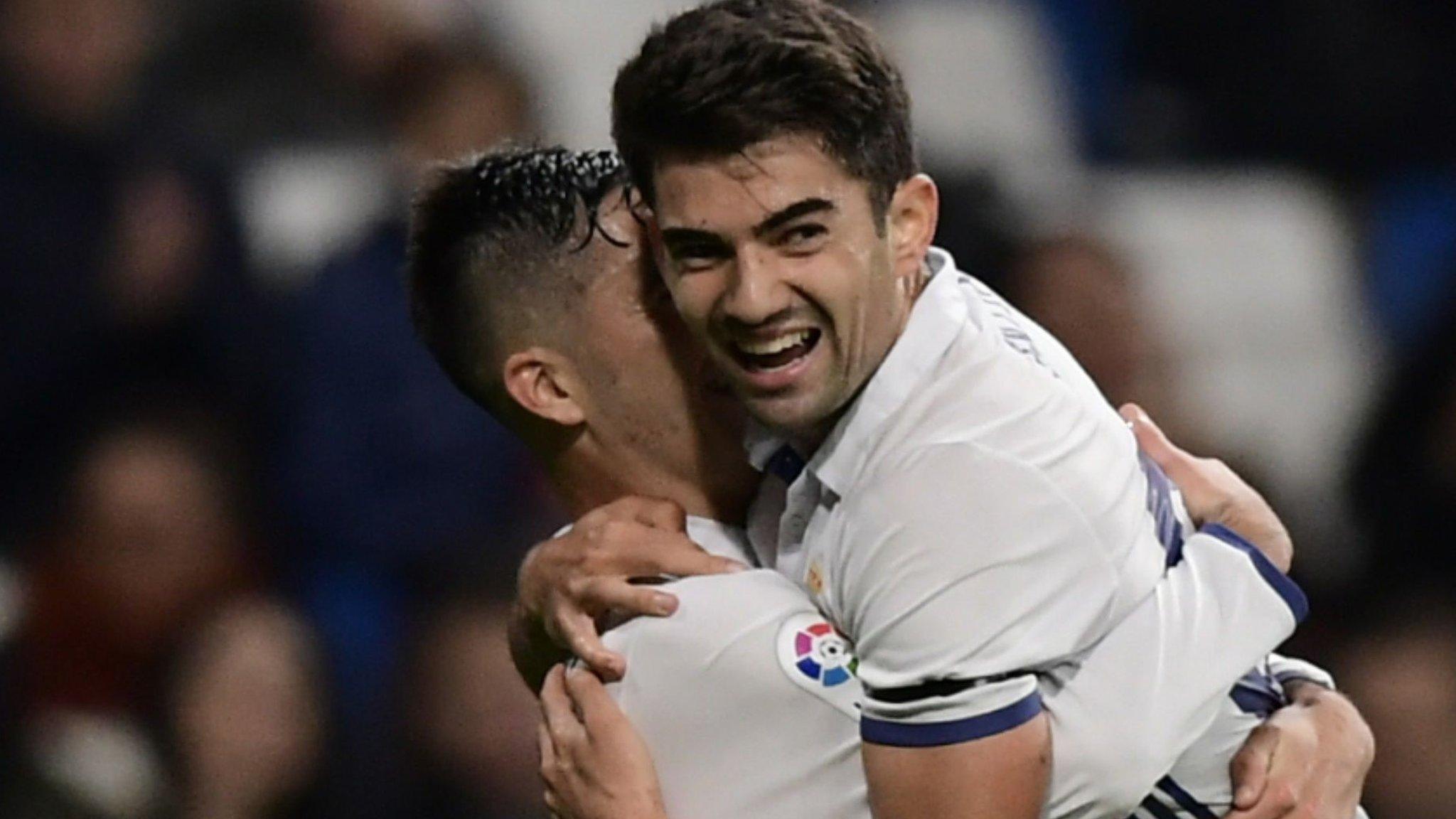
- Published30 November 2016
